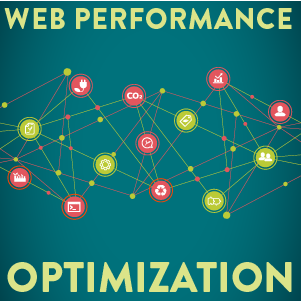Pulse of Information
Your source for the latest insights and updates.
Speed Demons: Why Your Website Needs an Upgrade
Unleash your website's full potential! Discover why a speed upgrade is crucial for success and keep visitors coming back for more.
How Website Speed Affects User Experience and SEO Rankings
The speed of a website plays a crucial role in determining the overall user experience. A fast-loading site not only keeps visitors engaged but also significantly reduces bounce rates. According to studies, users tend to abandon websites that take longer than three seconds to load. When a site is optimized for speed, it enhances navigation, allowing users to find the information they need quickly and efficiently. This level of efficiency can lead to increased customer satisfaction and higher conversion rates, making website speed a key factor in retaining visitors.
In addition to user experience, website speed is also a critical component of SEO rankings. Search engines like Google prioritize sites that load quickly, as they're seen as more reliable and user-friendly. Faster websites tend to receive higher search rankings, which increases organic traffic. Factors such as page load times, mobile responsiveness, and overall performance metrics contribute to how search engines evaluate and rank websites. Therefore, improving your site’s speed not only benefits users but also enhances your visibility in search results.

Top Signs Your Website is Slowing Down and Needs an Upgrade
In today's digital landscape, website performance is crucial for user satisfaction and retention. One of the most significant indicators that your site is slowing down is an increase in load times. If users are experiencing delays beyond three seconds, they are likely to abandon your site. Utilize tools like Google PageSpeed Insights to measure your site's performance. Additionally, keep an eye on your bounce rate; a higher rate often correlates with slower page loads. Consider these signs:
- Page load time exceeds three seconds
- Increased bounce rate
- User complaints about speed
Another critical sign that your website may need an upgrade is the performance on mobile devices. With the increasing number of users accessing websites via smartphones, it's essential to ensure your site is optimized for mobile performance. If you notice a significant drop in mobile traffic or engagement, this could be a direct result of slow loading speeds. Make sure to evaluate:
- Mobile page load times
- Responsiveness of navigation elements
- Compatibility with various mobile browsers
The Ultimate Guide to Improving Your Site's Speed for Better Performance
In today's digital landscape, site speed is crucial for user experience and SEO performance. A faster website not only improves the likelihood of retaining visitors but also enhances your rank on search engines. To maximize your site's speed, start by optimizing images. Ensure that all images are compressed and resized appropriately for their respective use on the site. Additionally, utilizing browser caching can significantly reduce load times for returning users. Implementing a Content Delivery Network (CDN) is another effective strategy; it stores static files across various locations, ensuring quicker access for users globally.
Another essential factor in boosting your site's speed is optimizing your website’s code. This can be achieved by minimizing CSS, JavaScript, and HTML files, which can reduce the overall page size and load time. Consider using asynchronous loading for JavaScript to prevent it from blocking the rendering of your page. Furthermore, regularly evaluate your hosting plan—investing in a reliable hosting provider can make a significant difference in performance. In summary, focusing on these key aspects will not only enhance your site's speed but also lead to better overall performance and user satisfaction.